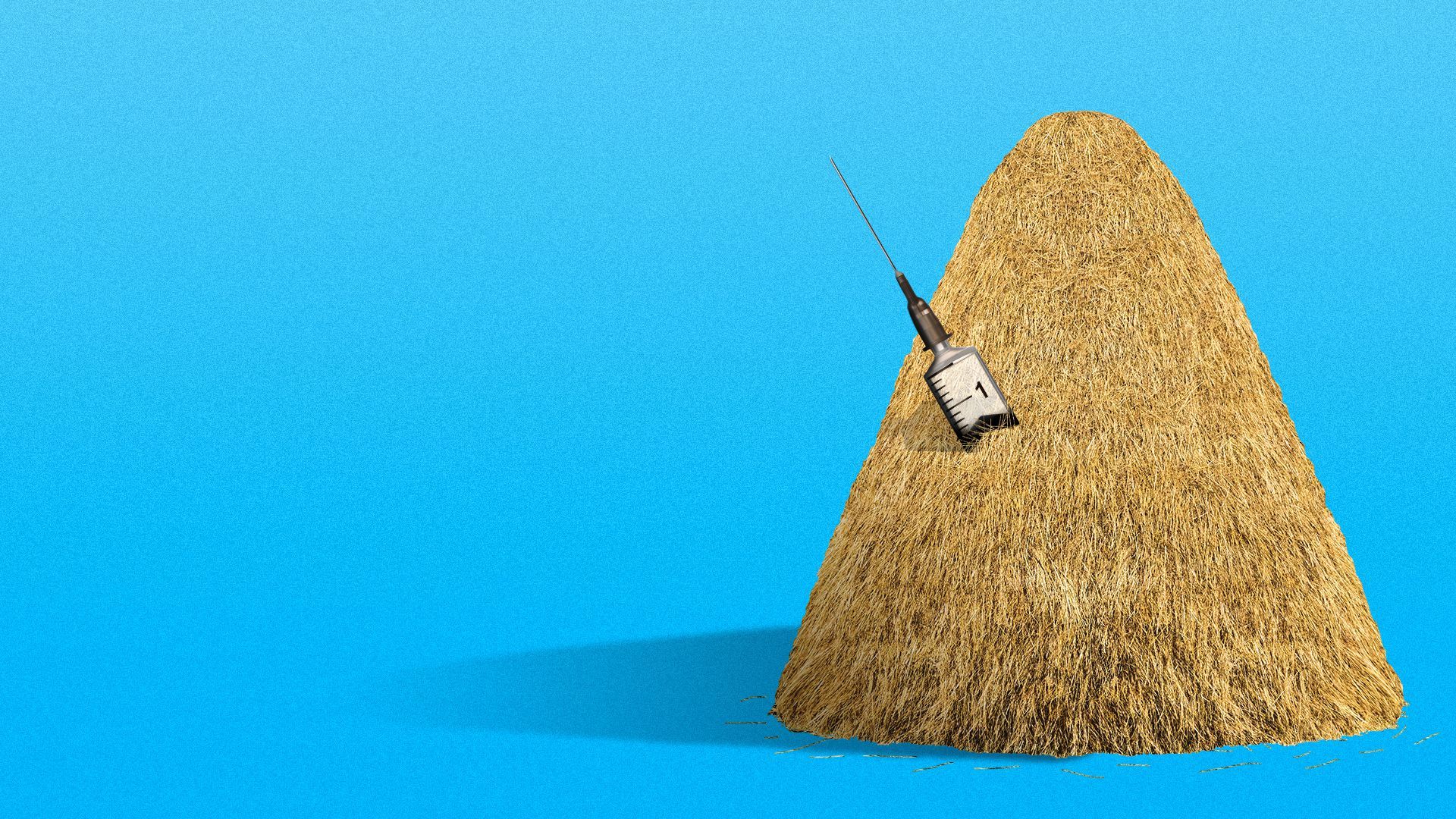Rural America will have a harder time getting vaccinated
Add Axios as your preferred source to
see more of our stories on Google.

Illustration: Aïda Amer/Axios
Rural America's weak health care infrastructure, combined with vaccine hesitancy and the complexities of the distribution process, will make it much harder to vaccinate rural America against the coronavirus.
Why it matters: Rural areas are getting slammed by the virus, with some of the highest caseloads and most overworked hospitals anywhere in the country.
The big picture: Rural health systems have long grappled with underfunding and a shortage of workers. Those same challenges will also complicate vaccination efforts.
- “It is just logistically easier to reach people in dense urban populations than sparse rural ones,” said Josh Michaud, associate director of global health policy at the Kaiser Family Foundation.
Where it stands: Rural hospitals in several states were left out of this week’s initial shipment. The Pfizer vaccine must be stored at ultra-cold temperatures that only a small number of facilities can achieve, and it ships in batches of almost 1,000 doses.
- "(There was) a lot of frustration and a lot of questions about why urban nurses are more valuable than a rural nurse," said John Henderson, the CEO of the Texas Organization of Rural & Community Hospitals, told Houston Public Media. The organization argued it could have worked around the distribution challenges.
What's next: Moderna’s vaccine, which the FDA will likely authorize this week, has much less stringent storage requirements and will be shipped in smaller batches. But it won't solve rural America's disadvantages.
- After health care workers and nursing home residents have been vaccinated, it'll be much harder to target the next round of doses, and make them easily available, in rural areas.
- “That’s a much more dispersed population you're talking about,” Michaud said. “You’re needing more and more distribution points to reach a broader set of the population.”
Between the lines: High levels of vaccine hesitancy among rural Americans add another layer of difficulty.
- “If you have vaccine on hand and your priority group is not showing up to receive the vaccine, you may turn to the next group to vaccinate them if they are showing up,” Michaud said. “There’s a tension between ease of access and reaching equity."
What they’re saying: “We aren’t going to be forgotten,’' Carly Benton, executive director of The Mercy Ministries, which runs free and charitable health clinics in southeast Georgia, told the Atlanta Journal-Constitution. “There’s just going to be as much as a six-month delay to get the vaccines."
